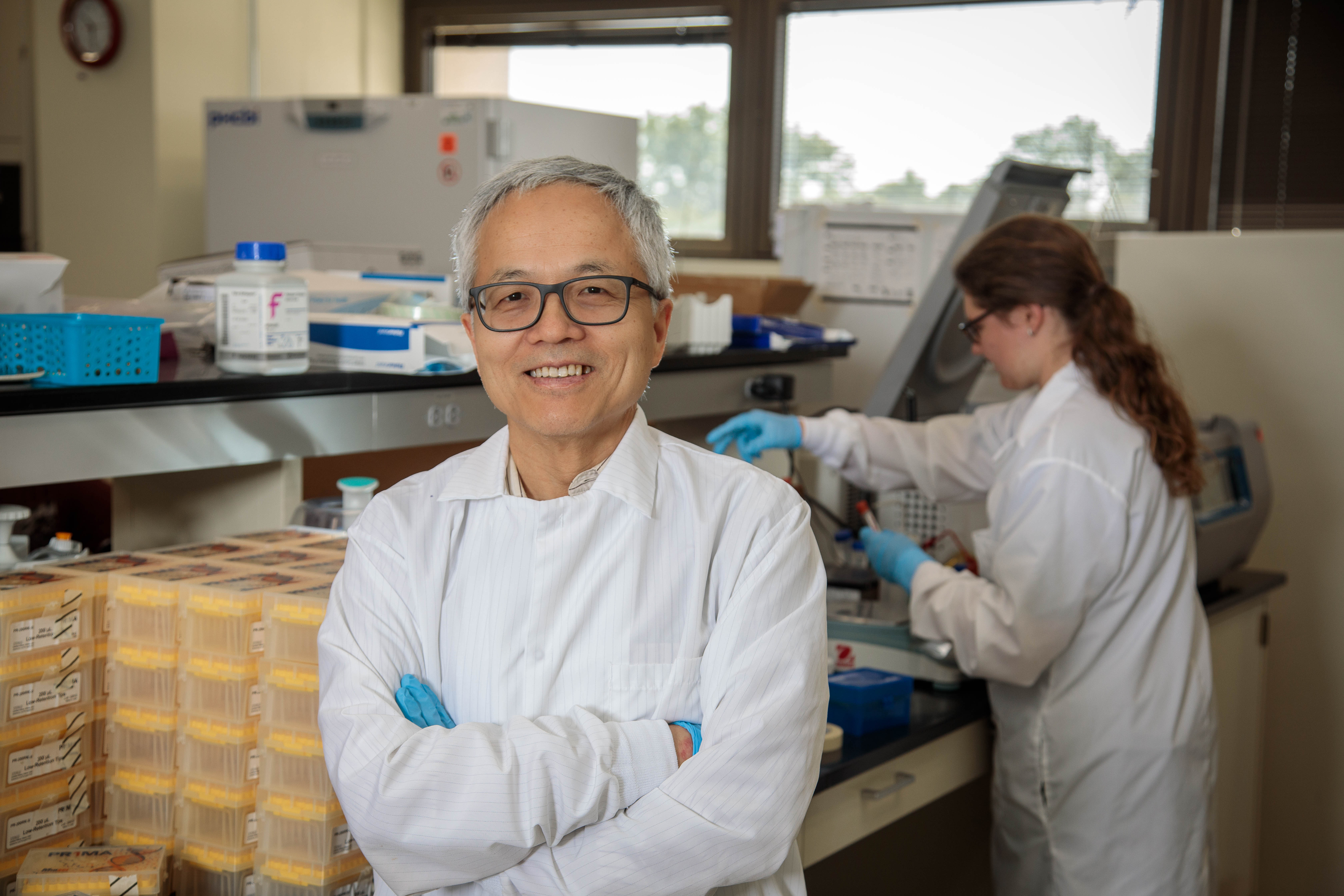University of Kentucky researcher sheds light on influenza D
University of Kentucky researcher sheds light on influenza D


A University of Kentucky researcher is working to uncover the mysteries of an elusive pathogen and determine its potential to leap from animals to humans.
Feng Li, a virologist at the University of Kentucky Martin-Gatton College of Agriculture, researched influenza D for several years. With a distinguished career spanning over two decades, including a 15-year tenure at South Dakota State University, Li brings a wealth of knowledge to the table.
“We initially thought the virus originated in pigs, after hearing reports of the animals displaying flu-like symptoms in Oklahoma,” Li said. “However, we’ve learned cattle primarily transmit it, and it’s fairly common. Unlike its better-known counterparts, influenza A, B, and C, influenza D is distinct and distantly related. It has been identified as a new type of virus that has recently gained recognition within the scientific community.”
Although influenza D primarily affects cattle, Li said there is evidence of periodic spillover to other animals such as goats, buffalo and sheep. He revealed there have been indications of human exposure to the virus, particularly among individuals working on cattle farms. While it remains unclear whether these individuals experienced any symptoms, the potential for zoonotic transmission sparked the need for further investigation.
“One of the primary concerns surrounding influenza D is its potential to infect humans,” Li said. “My research aims to understand the virus’s tissue tropism and host tropism, as well as its basic infection biology. Our team has conducted experiments with ferrets, which serve as a valuable model for studying human influenza. If influenza D proves capable of efficient replication and transmission in ferrets, it could suggest a heightened risk of cross-species transmission, including to humans.”
Unlike influenza A and B, no vaccine is currently available for influenza D. The Centers for Disease Control and Prevention does not include Influenza D in annual surveillance programs. Li stressed the importance of active surveillance and monitoring to detect any potential mutations that could enable the virus to infect humans.
“The global impact of the COVID-19 pandemic and the concerning mutation of avian influenza draws our attention to the wider context of zoonotic diseases,” Li said. “They highlight the necessity of increased vigilance and proactive research to mitigate potential outbreaks and pandemics.”
Li acknowledged that the scientific community needs to exercise caution when conveying any potential risks of Influenza D.
“Our primary focus is to gather crucial data to better understand the virus’s behavior, rather than instilling any unnecessary alarm,” he said. “By unraveling the mysteries of this virus, we hope to establish safeguards and proactive measures to address any potential threats.”
Li emphasized that influenza D is widespread in cattle, throughout the United States and beyond. Although some infected cattle exhibit mild symptoms, others can become severely ill, particularly when co-infected with other pathogens. He stressed the virus's ongoing mutability will require continual monitoring and analysis to identify any significant changes that may impact human susceptibility.
Studies show approximately 10% of horses tested for influenza D in the Midwest have antibodies against the virus, suggesting past exposure.
“Although horses can be infected, they generally display mild symptoms, highlighting their ability to resist disease caused by influenza D,” Li said.
Looking ahead, Li expressed hope that ongoing research provides invaluable insights into the virus's behavior and its potential to infect humans. He said continued funding and support is critical.
Research reported in this publication was supported by the National Institute of Allergy and Infectious Diseases of the National Institutes of Health under Award Number R01AI141889. The content is solely the responsibility of the authors and does not necessarily represent the official views of the National Institutes of Health.
– 30 –
The Martin-Gatton College of Agriculture, Food and Environment is an Equal Opportunity Organization with respect to education and employment and authorization to provide research, education information and other services only to individuals and institutions that function without regard to economic or social status and will not discriminate on the basis of race, color, ethnic origin, national origin, creed, religion, political belief, sex, sexual orientation, gender identity, gender expression, pregnancy, marital status, genetic information, age, veteran status, physical or mental disability or reprisal or retaliation for prior civil rights activity.
Ag Equine Programs Research

